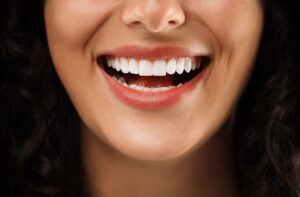We’re not exaggerating when we say dental crowns are the most versatile restorative dentistry treatment. Placed over damaged or weakened teeth, they restore functionality and strength. But, if you’ve never had a dental crown, you may not know much about them. This article discusses 7 facts about crowns, some of which may surprise you. So, in no particular order, let’s get started.
Dental crowns protect your oral and overall health
Covering a damaged tooth with a dental crown often saves its life. Crowns shield your natural tooth from future damage, decay, and bacteria. They hold fractured teeth together and protect weak or injured teeth. Preserving natural teeth supports long-term jawbone health and aids in maintaining the health of remaining teeth by facilitating easier cleaning.
Healthy teeth and gums contribute to overall health by enhancing immune function and reducing the risk of heart disease or stroke. However, while a dental crown can’t decay, the tooth beneath it can, so it’s vital to maintain good oral health at all times.
Crowns fill small and large gaps
Here’s a fact you may not know about dental crowns. A single crown can be used as part of a dental bridge to replace one missing tooth. But did you know that several crowns can be connected to close a larger gap caused by up to 3 missing adjacent teeth? It’s done by fusing three artificial teeth between two dental crowns. The two crowns are placed over the teeth at either end of the gap (abutment teeth) to bridge the gap, while the false teeth in the middle give the illusion of a full smile. If the abutment teeth aren’t sufficiently healthy, dentists can replace them with dental implants to secure the bridge. This offers enhanced stability and helps to preserve the jawbone
Crowns top off dental implants
When replacing a missing tooth or teeth with dental implants, dental crowns complete the process. Once a dentist has placed the implant into the jawbone and it has successfully fused with the surrounding bone, a beautifully crafted dental crown is attached to the implant post with an abutment. Because the crowns are carefully color-matched and shaped to resemble the surrounding teeth, they blend seamlessly into the smile.
Crowns generally require no more than two appointments
Generally, there’s no need to allow more than two appointments to have a dental crown placed. During the first visit, the dentist examines your mouth, takes impressions from which a mold is made, and prepares the tooth to make room for the crown. During the second visit, the crown is fitted and adjusted where necessary for a perfect fit.
However, whereas patients often have to wait weeks between appointments for their crowns to come back from the lab that made them, we have an in-house lab where we mill our bespoke crowns. While we don’t offer same-day crowns, we can complete them in 2 days for patients in a rush, provided we know in advance.
Another benefit of receiving dental crowns from Mint Dental is that costs are kept down since there’s no lab fees to pay from outsourcing. Now, that is worth knowing, right?
Crowns can be made from a variety of materials
Have you ever seen a flash of gold when a person smiles? You’ve guessed! That was a gold crown. Dental crowns come in various guises including porcelain, porcelain fused to metal, stainless steel, gold, and one of the newest materials, zirconia. Your dentist will talk you through your best options according to your lifestyle, dental needs and budget.
Lifespan of dental crowns
The average lifespan of a crown is around 10 years, but with the proper care some crowns can last decades.
Dental crowns need to be treated just like your natural teeth and brushed and flossed regularly. When flossing around the crowned tooth, gently slide the floss up and down the sides of the tooth, taking care when you slide the floss out not to dislodge the crown. Steer clear of sticky or hard foods which could cause the crown to loosen or fall off. Should this happen, give our dentist a call immediately. They will usually provide you with a temporary crown to wear until a new permanent crown can be made.
Dental crowns can improve the look of your smile
So far, we’ve talked about the advantages of dental crowns in restorative dentistry but did you know that crowns are also a cosmetic dentistry procedure?
Dental crowns can revitalize teeth that are permanently stained, misshapen, or slightly misaligned. Since our porcelain crowns are tailored specifically for you, they are expertly crafted to match the color and sheen of your natural teeth.
The overall look of your smile is also taken into account, ensuring the crown blends in seamlessly so well that it’s indistinguishable from a real tooth! The strength of the materials used and the precision of modern technology, means they function just like natural teeth, enabling patients to smile, laugh, and eat without worrying how their crown will react.
Are dental crowns right for you?
Despite their straightforward concept, dental crowns incorporate materials and technology that have been constantly refined to ensure optimal outcomes. This means your porcelain crown not only mimics the appearance and function of a natural tooth but also discreetly safeguards your oral and general health.
For further details on your treatment choices, feel free to contact us at (907) 318-1560 or use our online booking service to arrange a consultation whenever it’s convenient for you. We look forward to showing you just what we can do.







